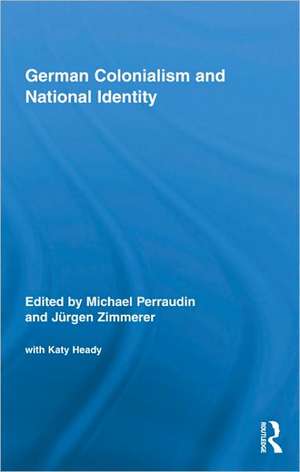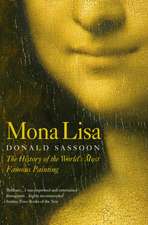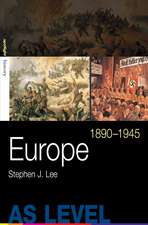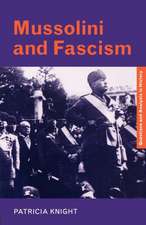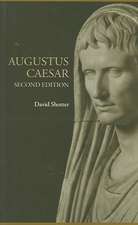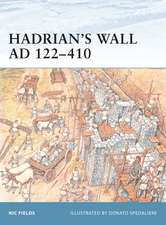German Colonialism and National Identity: Routledge Studies in Modern European History
Editat de Michael Perraudin, Juergen Zimmereren Limba Engleză Hardback – 16 iul 2010
.
| Toate formatele și edițiile | Preț | Express |
|---|---|---|
| Paperback (1) | 429.24 lei 6-8 săpt. | |
| Taylor & Francis – 23 apr 2015 | 429.24 lei 6-8 săpt. | |
| Hardback (1) | 850.12 lei 6-8 săpt. | |
| Taylor & Francis – 16 iul 2010 | 850.12 lei 6-8 săpt. |
Din seria Routledge Studies in Modern European History
-
 Preț: 342.58 lei
Preț: 342.58 lei -
 Preț: 341.55 lei
Preț: 341.55 lei -
 Preț: 288.80 lei
Preț: 288.80 lei - 9%
 Preț: 938.36 lei
Preț: 938.36 lei -
 Preț: 311.41 lei
Preț: 311.41 lei - 9%
 Preț: 935.39 lei
Preț: 935.39 lei - 9%
 Preț: 937.88 lei
Preț: 937.88 lei - 9%
 Preț: 934.94 lei
Preț: 934.94 lei -
 Preț: 311.47 lei
Preț: 311.47 lei - 18%
 Preț: 1035.66 lei
Preț: 1035.66 lei - 18%
 Preț: 1101.58 lei
Preț: 1101.58 lei - 26%
 Preț: 842.51 lei
Preț: 842.51 lei -
 Preț: 362.32 lei
Preț: 362.32 lei - 18%
 Preț: 1034.87 lei
Preț: 1034.87 lei - 18%
 Preț: 1041.41 lei
Preț: 1041.41 lei - 15%
 Preț: 451.75 lei
Preț: 451.75 lei - 26%
 Preț: 817.06 lei
Preț: 817.06 lei -
 Preț: 421.71 lei
Preț: 421.71 lei - 18%
 Preț: 923.55 lei
Preț: 923.55 lei -
 Preț: 443.04 lei
Preț: 443.04 lei - 18%
 Preț: 1090.54 lei
Preț: 1090.54 lei - 26%
 Preț: 761.58 lei
Preț: 761.58 lei - 26%
 Preț: 762.66 lei
Preț: 762.66 lei - 18%
 Preț: 1090.54 lei
Preț: 1090.54 lei - 26%
 Preț: 760.59 lei
Preț: 760.59 lei - 18%
 Preț: 1164.79 lei
Preț: 1164.79 lei - 18%
 Preț: 907.14 lei
Preț: 907.14 lei - 18%
 Preț: 1085.91 lei
Preț: 1085.91 lei - 18%
 Preț: 1097.50 lei
Preț: 1097.50 lei - 18%
 Preț: 983.85 lei
Preț: 983.85 lei - 18%
 Preț: 1034.12 lei
Preț: 1034.12 lei - 26%
 Preț: 820.90 lei
Preț: 820.90 lei -
 Preț: 475.64 lei
Preț: 475.64 lei - 26%
 Preț: 817.66 lei
Preț: 817.66 lei - 26%
 Preț: 792.34 lei
Preț: 792.34 lei - 18%
 Preț: 2185.56 lei
Preț: 2185.56 lei - 26%
 Preț: 818.49 lei
Preț: 818.49 lei - 18%
 Preț: 1036.31 lei
Preț: 1036.31 lei - 26%
 Preț: 732.89 lei
Preț: 732.89 lei - 18%
 Preț: 1044.48 lei
Preț: 1044.48 lei - 26%
 Preț: 760.59 lei
Preț: 760.59 lei - 18%
 Preț: 1037.19 lei
Preț: 1037.19 lei -
 Preț: 270.25 lei
Preț: 270.25 lei -
 Preț: 437.35 lei
Preț: 437.35 lei - 18%
 Preț: 689.68 lei
Preț: 689.68 lei - 18%
 Preț: 1093.65 lei
Preț: 1093.65 lei
Preț: 850.12 lei
Preț vechi: 1144.21 lei
-26% Nou
Puncte Express: 1275
Preț estimativ în valută:
162.88€ • 171.48$ • 134.44£
162.88€ • 171.48$ • 134.44£
Carte tipărită la comandă
Livrare economică 22 ianuarie-05 februarie 25
Preluare comenzi: 021 569.72.76
Specificații
ISBN-13: 9780415964777
ISBN-10: 0415964776
Pagini: 350
Ilustrații: 33 line drawings
Dimensiuni: 152 x 229 x 23 mm
Greutate: 0.81 kg
Ediția:1
Editura: Taylor & Francis
Colecția Routledge
Seria Routledge Studies in Modern European History
Locul publicării:Oxford, United Kingdom
ISBN-10: 0415964776
Pagini: 350
Ilustrații: 33 line drawings
Dimensiuni: 152 x 229 x 23 mm
Greutate: 0.81 kg
Ediția:1
Editura: Taylor & Francis
Colecția Routledge
Seria Routledge Studies in Modern European History
Locul publicării:Oxford, United Kingdom
Cuprins
Introduction. German Colonialism and National Identity. Michael Perraudin and Jürgen Zimmerer Section A. Colonialism from before the Empire Chapter 1. Imperialism, Race, and Genocide at the Paulskirche: Origins, Meanings, Trajectories. Brian Vick Chapter Two. Time, Identity and Colonialism in German Travel Writing on Africa, 1848-1914. Tracey Dawe Chapter 3. Gray Zones: On the Inclusion of "Poland" in the Study of German Colonialism. Kristin Kopp Section B. Colonialism and Popular Utterance in the Imperial Phase Chapter 4. The War that Scarcely Was: The Berliner Morgenpost and the Boxer Uprising. Yixu Lü Chapter 5. Boy’s and Girl’s Own Empires: Gender and the Uses of the Colonial World in Kaiserreich Youth Magazines. Jeffrey Bowersox Chapter 6. Picturing Genocide in German Consumer Culture, 1904-1910. David Ciarlo Chapter 7. The Visual Representation of Blackness during German Imperialism around 1900. Volker Langbehn Chapter 8. Colonialism and the Simplification of Language: Germany’s Kolonial-Deutsch Experiment. Kenneth Orosz Section C. Colonialism and the End of Empire Chapter 9. Fraternity, Frenzy, and Genocide in German War Literature, 1906-1936. Jörg Lehmann Chapter 10. Colonial Heroes: German Colonial Identities in Wartime, 1914-1918. Michael Pesek Chapter 11. Crossing Boundaries: German Women in Africa, 1919-1933. Britta Schilling Chapter 12. Abuses of German Colonial History: The Character of Carl Peters as Weapon for völkisch and National-Socialist Discourses: Anglophobia, Anti-Semitism and Aryanism. Constant Kpao Sarè Chapter 13. "Loyal Askari" and "Black Rapist"--Two Images in the German Discourse on National Identity and their Impact on the Lives of Black People in Germany, 1918-1945. Susann Lewerenz Section D. German Colonialism in the Era of Decolonization Chapter 14. (Post-) Colonial Amnesia? German Debates on Colonialism and Decolonization in the Post-war Era. Monika Albrecht Chapter 15. Denkmalsturz. The German Student Movement and German Colonialism. Ingo Cornils Chapter 16. Vergangenheitsbewältigung à la française: Post-Colonial Memories of the Herero Genocide and 17 October 1961. Kathryn Jones Chapter 17. The Persistence of Fantasies. Colonialism as Melodrama on German Television. Wolfgang Struck Section E. Local Histories, Memories, Legacies Chapter 18. Communal Memory Events and the Heritage of the Victims. The Persistence of the Theme of Genocide in Namibia. Reinhart Kössler Chapter 19. The Genocide in "German South-West Africa" and the Politics of Commemoration--How (Not) to Come to Terms with the Past. Henning Melber Chapter 20. The Struggle for Genocidal Exclusivity. The Perception of the Murder of the Namibian Herero (1904-08) in the Age of a New International Morality. Dominik J. Schaller Chapter 21. Narratives of a "Model Colony": German Togoland in Written and Oral Histories. Dennis Laumann Chapter 22. Suspended between Worlds? The Discipline of Germanistik in sub-Saharan Africa. Arndt Witte
Recenzii
"This volume offers a snapshot of the variety of activities, research areas, research interests, and approaches emerging in the field of postcolonial studies with regard to Germany and the German colonial legacy. The twenty-two articles are all remarkably short, concrete, and informative; several afford insights into larger research projects." – Florian Krobb, National University of Ireland, Maynooth
"This broadly based, clearly structured, and highly integrated essay collection constitutes an excellent overview of the central points of the growing scholarly discourse on Germany's colonial past. The volume provides a well-focused snapshot of contemporary German colonialism studies and could ideally serve both as a reader for college or university courses on these matters or an orientation guide for scholars new to the field." - Hans J. Rindisbacher, The European Legacy: Toward New Paradigms
"This broadly based, clearly structured, and highly integrated essay collection constitutes an excellent overview of the central points of the growing scholarly discourse on Germany's colonial past. The volume provides a well-focused snapshot of contemporary German colonialism studies and could ideally serve both as a reader for college or university courses on these matters or an orientation guide for scholars new to the field." - Hans J. Rindisbacher, The European Legacy: Toward New Paradigms
Descriere
This original study applies post-colonial questions and methods to the study of Germany and its culture, combining political and cultural approaches, the study of literature and art, and the examination of both metropolitan and local discourses and memories.
